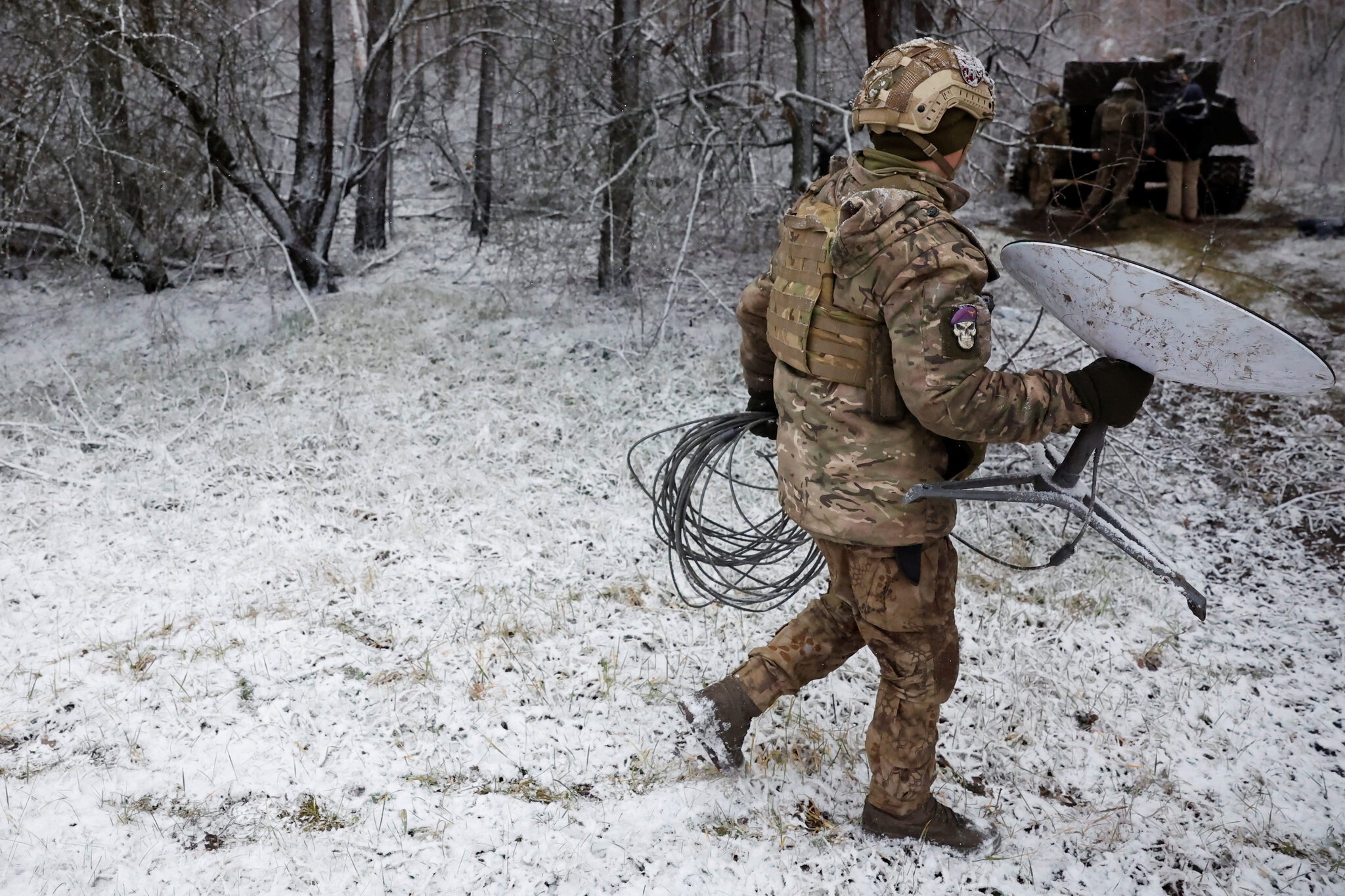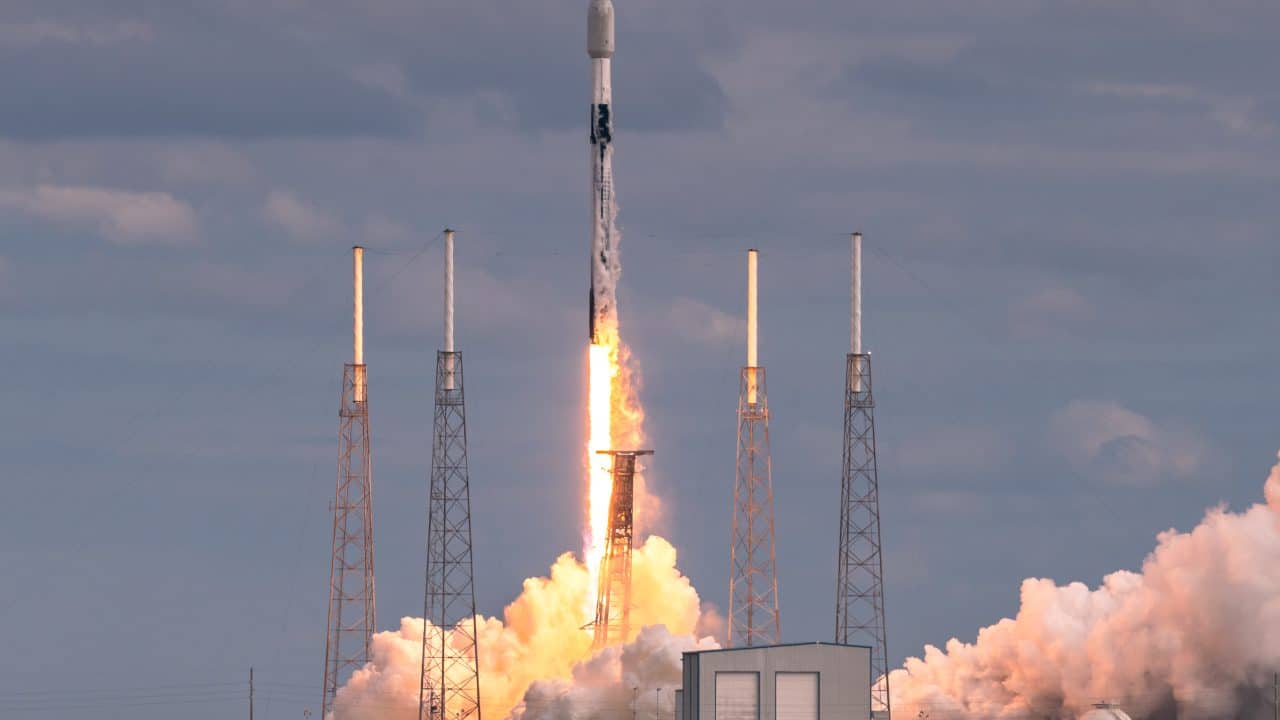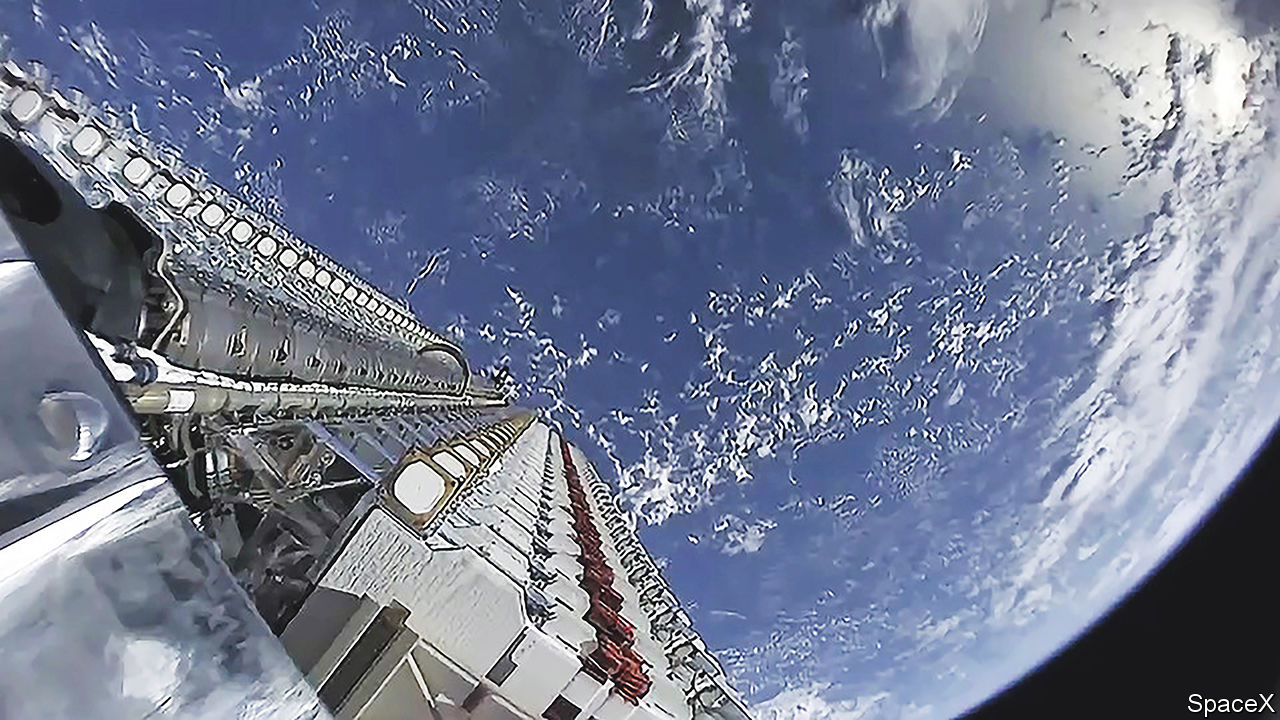In the shifting sands of modern warfare, technology plays a pivotal role in shaping the outcomes of conflicts. Among the arsenal of technological marvels, Starlink satellite internet terminals, a brainchild of Elon Musk’s SpaceX, have emerged as a double-edged sword in the ongoing Ukraine conflict.
Reports indicate that these high-tech devices are not only changing the dynamics on the battlefield but are also weaving a complex narrative of innovation, illicit trade, and geopolitical tension.

The Unseen Network: Black Market Proliferation of Starlink Terminals
At the heart of this narrative is a burgeoning black market dedicated to smuggling Starlink terminals into Russia, defying a strict ban on these devices. A recent investigation unveiled the intricate operations of black market sellers, facilitating the flow of these terminals from eBay to the front lines of the Russian military in eastern Ukraine and Crimea.
This illicit supply chain extends its dark tendrils from occupied Ukraine to as far as Sudan, drawing in a network of dealers accused of reselling the technology to groups implicated in human rights atrocities.
The utilization of Starlink terminals by Russian forces marks a significant escalation in the conflict, enabling enhanced communication and coordination of attacks, as well as the control of drones and other military technologies.
The revelation of these activities sheds light on the critical role of satellite internet in modern warfare, offering a lifeline of connectivity in the most remote and contested battlefields.
A shadowy black market is delivering Elon Musk’s Starlink satellite-internet devices to Russian fighters in Ukraine and paramilitary forces in Sudan.
The proliferation of the easy-to-activate hardware has thrust SpaceX into the geopolitics of war. https://t.co/uWFG0fMcyk
— The Wall Street Journal (@WSJ) April 10, 2024
Musk’s Dilemma: Navigating the Geopolitical Minefield
The involvement of Starlink technology in the Ukraine conflict has not gone unnoticed, drawing scrutiny from both the international community and the corridors of power in Washington.
Elon Musk, the visionary behind SpaceX, found himself at the center of controversy when allegations surfaced about the use of Starlink terminals by Russian forces. Musk vehemently denied any direct or indirect sales of the terminals to Russia, a stance echoed by Kremlin officials.
However, the presence of these devices on the battlefield raises unsettling questions about the effectiveness of export controls and sanctions.
The dilemma deepens with the revelation that Starlink possesses the capability to deactivate individual terminals and employs geofencing technology to block unauthorized usage. Yet, the persistence of these terminals in conflict zones suggests that black market operators might have found ways to bypass these safeguards.
This situation has caught the attention of House Democrats, who have urged Musk to take decisive action to curb the misuse of Starlink technology, underscoring the complex interplay between innovation, regulation, and international security.

The Cost of Conflict: Starlink’s Role in Ukraine’s Struggle
The narrative takes a darker turn with the disclosure of SpaceX’s decision to restrict Ukraine’s access to Starlink technology near Crimea, a move that sparked outrage among Ukrainian officials.
The decision, criticized for potentially contributing to civilian casualties, highlights the ethical and moral dilemmas inherent in the deployment of advanced technologies in conflict zones.
Despite Musk’s rebuttals and clarifications, the incident underscores the fraught relationship between tech companies and military operations, raising profound questions about accountability and responsibility in the age of digital warfare.

Beyond the Battlefield: The Global Implications of Starlink’s Misuse
As the world grapples with the ramifications of Starlink’s entanglement in geopolitical conflicts, the saga of these satellite internet terminals transcends the immediate context of the Ukraine war.
The black market trade of Starlink devices, spanning continents and implicating a range of actors from military units to paramilitary groups accused of grave human rights violations, reflects a broader challenge facing the international community.
The struggle to control the flow of advanced technologies, prevent their misuse, and safeguard human rights in the digital age demands a concerted effort from governments, corporations, and civil society alike.
In the shadow of this technological conundrum, the story of Starlink in the Ukraine conflict serves as a stark reminder of the dual nature of innovation: as a harbinger of progress and a weapon of war.
As the world watches the unfolding drama, the quest for balance between technological advancement and ethical responsibility remains more critical than ever.










